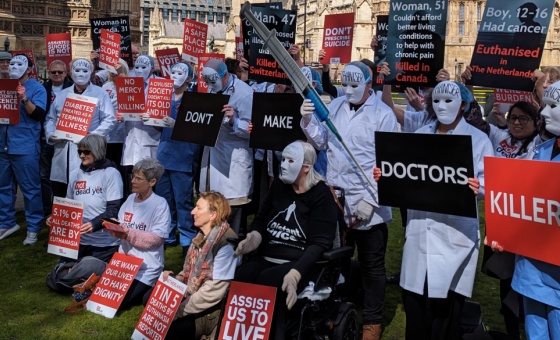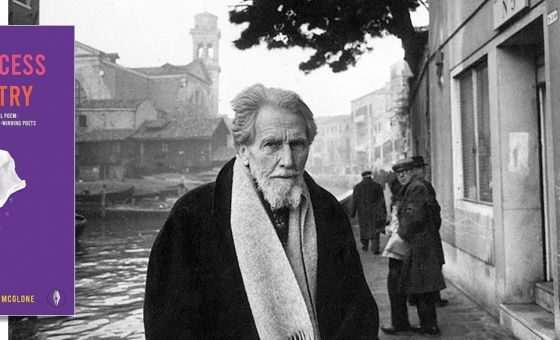This is the last article you can read this month
You can read more article this month
You can read more articles this month
Sorry your limit is up for this month
Reset on:
Please help support the Morning Star by subscribing here
DIGNITAS reported to the House of Commons Inquiry into Assisted Dying and said they had helped 540 Britons take their lives and that “it’s about time” to legalise assisted dying in Britain.
With these figures and other evidence, it can’t be made any clearer that assisted deaths are already happening. But with these services being abroad and costing thousands of pounds, many simply can’t afford to use the services of Dignitas, and those who can pay may find they are too poorly to travel, leaving both groups in an agonising situation.
So, yet again, the question being posed is: should we be doing something about this and allowing assisted deaths in this country? Can we make a law that would bring what is already happening into the open, where it can be properly documented, with protection from any potential abuse and prosecutions?
Official bodies that were at one time in opposition to such a law, are no longer, the latest being the Royal College of Surgeons (RCS) with 72 per cent of members now voting for a change in position. They now join the British Medical Association, the Royal College of Physicians, and the Royal College of Nursing, who all have adopted a neutral stance, no longer in opposition to assisted dying.
Sarah Wootton, chief executive of Dignity in Dying, said: “It’s notable that the majority of the RCS members like the majority of the British public personally recognise that our current laws are outdated and must change.”
As Wootton mentioned, the decision by the RCS reflects the position taken by the British public, who in the latest polling are 84 per cent in favour of assisted dying — and this includes all people, across faiths, genders, and whether they have a disability or not.
Bolstering the argument for assisted dying has been the research gathered from other countries. That is why Dignity in Dying is calling for a law “based on one that has worked safely in Oregon and has remained unchanged since 1997, a law that is now in place in California, Washington and other US states.”
Such a Bill would be limited to terminally ill and mentally competent adults; require the dying person to end their own life and not permit another person to do it for them; have a waiting period to give dying people time to reflect on their decision; require assessment by doctors and a High Court judge.
The latest ONS figures showing those with a serious and potentially terminal illness are more than twice as likely to take their own lives than those without such a condition.
Dignity in Dying research estimates that up to 650 terminally ill people take their own lives each year, while the Office of Health Economics estimates that even with universal access to hospice care, 17 people would still die each day in horrendous pain.
Pre-pandemic figures suggested that each week one British citizen was travelling to Dignitas in Switzerland to end their life — currently British membership of Dignitas is at an all-time high.
For those who can pay to go abroad to Switzerland, it’s often happening much earlier than they would have wanted.
This was the case with Sara and her husband Keith. Keith had Huntington’s disease and was very aware that soon he would be too ill to travel to Switzerland, and, as such, too ill to have a dignified death.
Keith didn’t want to die. He didn’t want to die in another country. He didn’t want to potentially put his wife and children at risk of prosecution. But he felt he had no choice. Sara is sure if Keith had the option of assisted dying in this country, he would’ve been able to live longer.
Sara noticed a distinct change in his mood when the green light from Dignitas came, with the worry about his death lifted. She says: “Assisted dying is not only about having a choice at the end of life, it is about giving a terminally ill person ‘back their life’ to enjoy, in their final few weeks.”
For those who can’t pay thousands to go abroad, or are too ill to go abroad, palliative care is often given. It is often argued that palliative care, or more investment in end-of-life care would mean there would be no need for assisted dying legislation.
James’s wife Helen had excellent palliative care, but there came a stage when she had enough of the effects of motor neurone disease. “She was trapped in a body that no longer worked,” said James, “An accident and emergency doctor asked how she was, and she said, ‘I want to die’.”
Knowing her condition was terminal, Helen decided to stop using the ventilator that was helping her breathe — a legal option to hasten death. James knew that although this allowed Helen some control, she would’ve preferred an assisted death earlier on.
His wife’s death had an impact on James who has multiple sclerosis. He is a member of Dignitas and does worry about being in the same sort of situation — unable to move or do anything.
“I think palliative care can help but it can’t always give you back the dignity. This is what my wife totally lost in the end. That is a factor in my own decision to be a member of Dignitas and I plan to travel if I’m suffering unbearably towards the end of my life.”
It’s about time we had an assisted dying law offering options to all those who have six months or less to live. A law offering protection by bringing what is already happening behind closed doors, and in other countries, back home, into the open and subject to legislation. Above all, it will be a compassionate response for individuals, no matter what their income, as they face the most difficult period of their lives.
Ruth F Hunt is a columnist and a freelance journalist.










